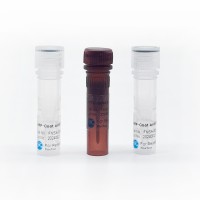Congenital heart defects occur in approximately 1% of newborns and are a major cause of morbidity and mortality in infants and children. Many adult cardiac diseases also have developmental basis, such as heart valve malformations, among others. Therefore, dissecting the developmental and molecular mechanisms underlying such defects in embryos is of great importance in prevention and developing therapeutics for heart diseases that manifest in infants or later in adults. Whole embryo culture is a valuable tool to study cardiac development in midgestation embryos, in which ventricular chambers are specified and expand, and the myocardium and endocardium interact to form various cardiac structures including heart valves and trabecular myocardium (Cell 118: 649–663, 2004; Dev Cell 14: 298–311, 2008). This technique is essentially growing a midgestation embryo ex utero in a test tube.
One of the strengths of embryo culture is that it allows an investigator to easily manipulate or add drugs/chemicals directly to the embryos to test specific hypotheses in situations that are otherwise very difficult to perform for embryos in utero . For instance, embryo culture permits pharmacological rescue experiments to be performed in place of genetic rescue experiments which may require generation of specific mouse strains and crosses. Furthermore, because embryos are grown externally, drugs are directly acting on the cultured embryos rather than being degraded through maternal circulation or excluded from the embryos by the placenta. Drug dosage and kinetics are therefore easier to control with embryo culture. Conversely, drugs that compromise the placental function and are thus unusable for in utero experiments are applicable in cultured embryos since placental function is not required in whole embryo culture. The applications of whole embryo culture in the studies of molecular pathways involved in heart valve formation, myocardial growth, differentiation, and morphogenesis are demonstrated previously (Cell 118: 649–663, 2004; Dev Cell 14: 298–311, 2008; Nature 446: 62–67, 2010). Here we describe a method of embryo culture in a common laboratory setting without using special equipments.






